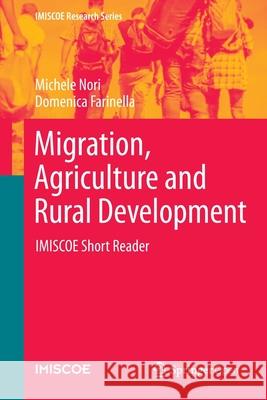Migration, Agriculture and Rural Development: Imiscoe Short Reader » książka
topmenu
Migration, Agriculture and Rural Development: Imiscoe Short Reader
ISBN-13: 9783030428624 / Angielski / Miękka / 2020 / 139 str.
Kategorie:
Kategorie BISAC:
Wydawca:
Springer
Seria wydawnicza:
Język:
Angielski
ISBN-13:
9783030428624
Rok wydania:
2020
Wydanie:
2020
Numer serii:
000331418
Ilość stron:
139
Waga:
0.24 kg
Wymiary:
23.39 x 15.6 x 0.89
Oprawa:
Miękka
Wolumenów:
01
Dodatkowe informacje:
Wydanie ilustrowane











